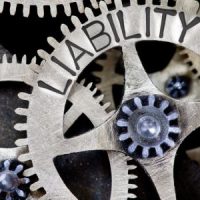Vicarious Liability in Car Crash Cases: Breaking it Down

Texas has one of the lowest auto insurance minimum coverage requirements in the state. Many drivers only have $55,000 per person (personal injury and property damage) coverage. The average personal injury and property damage amount in a catastrophic (life-threatening) injury case is more than $150,000. Something needs to fill in the gap between these two figures, and in many cases, that “something” is third-party liability.
Many times, a car accident is like a stick of dynamite. The dynamite only explodes because someone lit a fuse. A Sugar Land car accident lawyer holds the person, or the entity, that lit the fuse responsible for car crash damages. These damages usually include compensation for economic losses, such as medical bills, and noneconomic losses, such as pain and suffering. Additional punitive damages are available as well, in a few extreme cases.
Owner Liability
Teen driver wrecks, which account for a disproportionate number of car crashes, often involve negligent entrustment owner liability. People under 18 cannot legally own property. So, drivers under this age are always driving someone else’s car. Other common negligent entrustment situations include a person driving a roommate’s car or a spouse driving the other spouse’s vehicle.
These owners are responsible for car crash damages if they knowingly allow incompetent drivers to operate their motor vehicles. Evidence of incompetence includes:
- No valid drivers’ license,
- Driving in violation of a license restriction (e.g. no freeway driving), and
- A poor driving record.
For several reasons, these cases are extremely complex in the Lone Star State. For example, Texas, unlike most other states, doesn’t have a vicarious liability law. So, it’s harder to prove negligence, or a lack of care, in these situations.
Alcohol Provider Liability
Texas law in this area is on the other end of the spectrum. The Lone Star State has one of the broadest dram shop laws in the country. Restaurants, bars, and other such commercial alcohol providers are vicariously liable for car crash damages if they knowingly sell alcohol to intoxicated persons who later cause crashes. Evidence of intoxication a the point of sale includes:
- Physical symptoms, like bloodshot eyes,
- Prior purchases at that location, and
- Statements the tortfeasor (negligent driver) makes to witnesses.
Dram shop liability also applies to other illegal sales, such as underage and unlicensed sales. The law could also apply to packaged alcohol sales at grocery stores and other such establishments.
Employer Liability
Semi-truck, Uber, bus, and other commercial driver wrecks almost always involve the respondeat superior doctrine. This legal rule applies if the tortfeasor:
- Was an employee and
- Working within the course and scope of employment.
Since the company controls their behavior, almost all commercial drivers, even independent contractors and unpaid volunteers, are employees for negligence purposes. Furthermore, under Texas law, any activity that benefits the employer in any way is within the course and scope of employment.
Connect With a Diligent Harris County Attorney
Injury victims are entitled to significant compensation. For a confidential consultation with an experienced personal injury attorney in Missouri City, contact the Henrietta Ezeoke Law Firm. Virtual, home, and hospital visits are available.
Source:
progressive.com/answers/texas-car-insurance/
